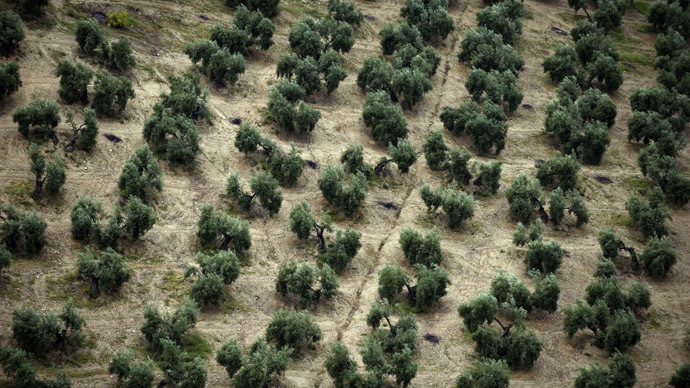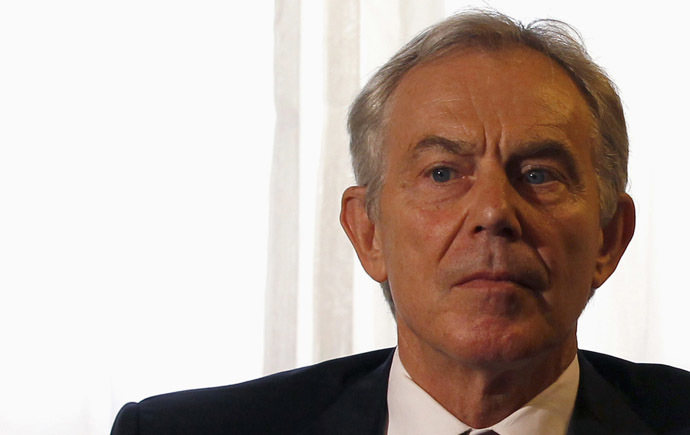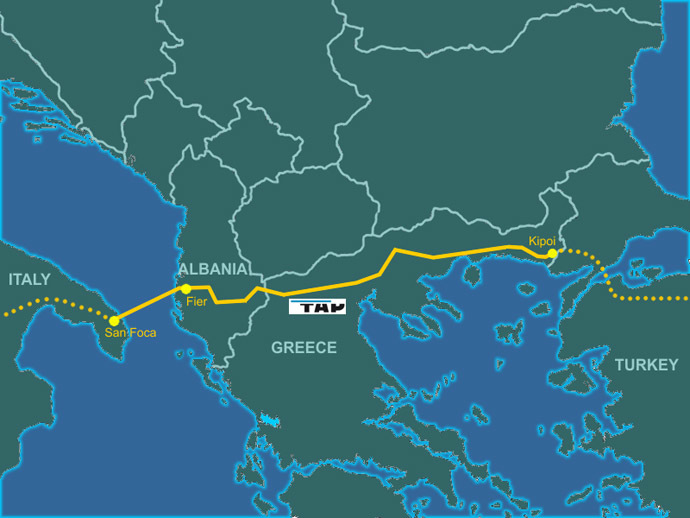The new ‘Blair rich project’: Pushing Trans-Adriatic pipeline against Italians’ objections

Why should an olive farmer from sunny southern Italy remember Tony Blair, the former British prime minister who led the UK into the Iraq war to destroy Saddam’s imaginary weapons of mass destruction?
Forget that he brilliantly served as George W. Bush’s “poodle” or that from the Labour ranks he was the most coherent heir of Thatcher’s destructive neoliberal reforms. In front of the olive farmers in San Foca, among the best shores of Italy’s Puglia region, stands now a prophet of the “unavoidable” globalization, a cosmic PR that has a say on the Middle East peace scam-process (he usually comes to rescue the strongest) and kindly explain to some dictators how to cope with those stupid Western democracies. Yo, Blair – what are you doing this time? He is pushing a huge global project in the name of some big guys who care less than nothing that the local people don’t want it.

The scheme is, as always, a case of powerful elites against ordinary people, and guess which side he is for? He is gazing now at Puglia’s southern coasts in his capacity of facilitator of Ilham Aliyev, Azerbaijan’s president, nominated in 2012 for Person of the Year by the Organized Crime and Corruption Reporting Project (OCCRP) and the TAP consortium of energy, Trans Adriatic Pipeline, formed by British oil giant BP (20 percent), Azerbaijan’s state oil company SOCAR (20 percent), Norway’s Statoil (20 percent), Belgium’s Fluxys (16 percent), France’s Total (10 percent), Germany’s E.ON” (9 percent) and Switzerland’s di Axpo (5 percent). It’s a 2,000-mile pipeline transporting gas from Shah Deniz-2, the biggest Azeri gas field in the Caspian Sea, across Turkey, Greece and Albania to Italy.
The main raison d'être for this pipeline, with a capacity of 10 billion cubic meters of natural gas per year, (ready to be doubled) is mainly a political one: the European will to reduce the dependence on Russian gas.
An apparent paradox in a world in which economy has devoured all the political space. Not so paradoxical if one thinks that the predominance of the economy is another way to describe American imperial rule. So, the same European Union that is merrily applying new sanctions to Moscow against its own interest in a masochistic void of strategy strongly supports TAP as a “Project of Common Interest.” Italian Prime Minister Matteo Renzi has just said during a visit to Bari (Puglia’s main city) that the TAP must be built with “no ifs, ands or buts” and the Italian Environment Ministry has just given its definitive approval a few weeks ago.
But the people of Salento, the tourist area in which San Foca is situated, do not agree with the brilliant blah-blah of Tony Blair and the other TAP public relations VIPs, such as former German Foreign Minister Hans-Dietrich Genscher and former BP chairman Peter Sutherland. Many of them are actively opposing the project, together with the majority of local mayors and regional president Niki Vendola. A “No to TAP” committee is fighting a daily battle against the pipeline, which can count on the support of a majority of the Italian media. They have two kinds of objections, an ecological one and an economic one. The first objection is about the environmental damage that the new structure will spread in an uncontaminated area with centuries-old olive trees and a unique wildlife, which lives mainly on tourism. The second objection is about the uselessness of such a huge project in this unending period of economic crisis.

Obviously the TAP advocates’ main argument is not “Defend us from the Russians.” They are saying that the pipeline will definitely bring secure energy and less expensive bills to the people. Not bad, indeed. The problem is that the Italian government is pushing like hell on energy infrastructure without apparently considering, for example, the steady decline of gas consumption, currently at 2002 levels. Terna, an Italian electricity transmission system operator, reported that in August Italian consumption of electricity decreased by 3.3 percent over the previous year, while about 45 percent of production comes from sustainable energy sources such as hydroelectric, wind and solar energy. The Western economy’s machine is stuck on a crisis that doesn’t hint at passing. Some economists are concluding that it is structural. Furthermore, the 2012 Italian Energy Strategy introduces the possibility that the consumers will pay in a measure the cost of building the plants with the future energy bills. Is interesting to note how this is far from the sacred religion of the market that every European politician officially professes.
In this situation, not only it is difficult to imagine how the future bills will be lower, it is reasonable indeed to predict that they will be higher. Italian journalist Gionata Picchio calculated in the newspaper “Il Fatto” that for Italian consumers the extra cost of the new projects that the Italian government wants to realize (Tap among them) will be about 350 million euros per year.
The task of the pro-TAP propagandists is to make Salento’s people bite the bullet. With the willing help of the Italian government they will surely explain to the naïve local farmers and ecologists that they need to “see the big picture” from an international economic point of view. See the forest for the trees. But behind the PR smiles, the factual message shines in its brutal essentiality: you have to make us and our unseemly Azeri oligarchs even richer with a pipeline that probably will bring you no gains but only troubles. Anyway, this is the prize you have to pay to freeze the Russian bear out of our “democratic paradise.”
The statements, views and opinions expressed in this column are solely those of the author and do not necessarily represent those of RT.
The statements, views and opinions expressed in this column are solely those of the author and do not necessarily represent those of RT.













